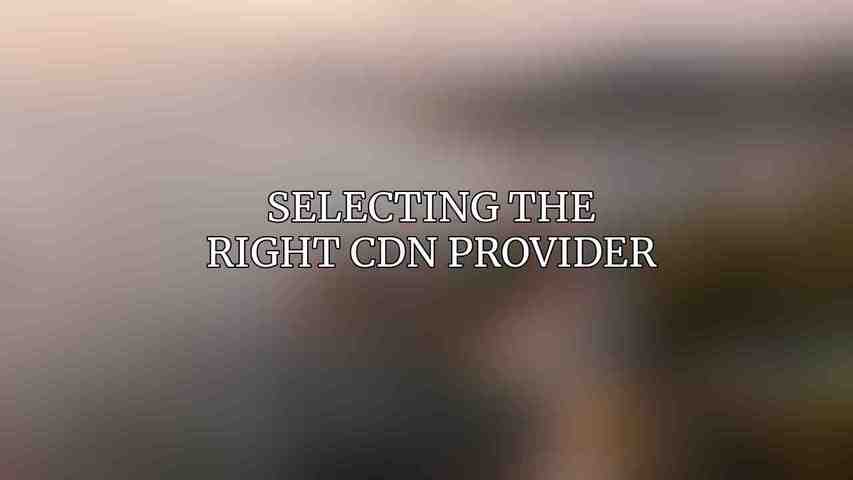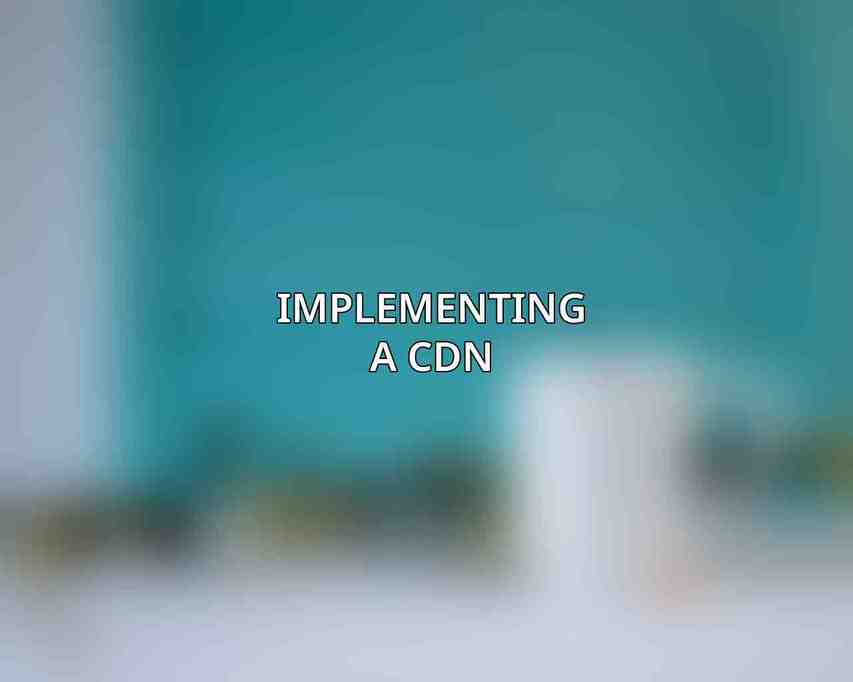The world of online content delivery has been revolutionized by Content Distribution Networks (CDNs). CDNs are sophisticated networks of servers strategically dispersed across various locations globally to deliver web content more efficiently to users. The primary purpose of CDNs is to enhance the performance, reliability, and security of websites and applications. Find more on How to Optimize Your Content for SEO: A Practical Guide
One of the key benefits of utilizing CDNs is the improved content delivery speed they offer. By distributing content across multiple servers, CDNs reduce the physical distance between the user and the website’s server, resulting in faster loading times. Moreover, CDNs contribute to increased content availability and reliability, ensuring that users can access the content they desire without interruption. Additionally, CDNs can help businesses reduce bandwidth costs by offloading a significant portion of the content delivery to their network. Enhanced security is another advantage as CDNs provide protection against DDoS attacks and other potential threats.
How CDNs Work
CDNs operate by strategically deploying edge servers in multiple locations around the world. These edge servers store cached copies of the website’s content, reducing the distance data must travel to reach the end-user. By leveraging content caching and replication, CDNs ensure quick retrieval of content, minimizing latency and optimizing the user experience. CDN service models vary, including traditional CDNs, cloud-based CDNs, and peer-to-peer CDNs, each offering unique advantages based on specific requirements.
Types of Content CDN Services
CDNs cater to a wide range of content delivery needs, including static content delivery encompassing text, images, videos, and audio files. For dynamic content such as streaming media, software downloads, and web applications, CDNs provide real-time delivery capabilities, ensuring seamless user experiences even for interactive content.
Selecting the Right CDN Provider

Choosing the right CDN provider is crucial for effective content distribution. Factors to consider include the type and volume of content, target audience location, pricing models, features and capabilities, and customer support. Selecting a provider that aligns with specific business needs and goals is essential for optimizing content delivery and user experience.
Implementing a CDN

Implementing a CDN involves meticulous planning, deployment, and optimization strategies. Identifying content to distribute and selecting a suitable CDN provider and plan are initial steps. Integration with the website or platform, configuring caching rules, and monitoring performance are critical aspects of deploying a CDN successfully.
Case Studies and Success Stories
Numerous businesses have realized substantial benefits from employing CDNs. These include increased website traffic and engagement, improved customer satisfaction, and reduced operational costs. By leveraging CDNs, companies have enhanced their online presence, accelerated content delivery, and elevated user satisfaction levels.
Trends and Innovations in CDN Technology
Innovative technologies such as artificial intelligence and machine learning are revolutionizing CDN capabilities by enhancing content personalization and optimization. Edge computing and serverless architectures are also reshaping how CDNs handle data processing and content delivery, paving the way for more efficient and scalable solutions. The future of CDNs holds promise with increasing adoption rates and deeper integration with evolving digital technologies.
CDNs have become indispensable tools for organizations seeking to optimize content delivery and user experiences in the digital world. By leveraging CDNs, businesses can enhance website performance, improve security, and achieve cost efficiencies. Embracing CDNs is crucial for amplifying reach, engaging audiences effectively, and staying competitive in a rapidly evolving online environment.
Frequently Asked Questions
What are Content Distribution Networks (CDNs)?
Content Distribution Networks (CDNs) are networks of servers strategically placed around the world to deliver website content more efficiently to users based on their geographical location, ensuring faster loading times and better performance.
How can CDNs help amplify my reach?
By distributing your website content across multiple servers worldwide, CDNs can reduce latency, improve loading times, and enhance overall user experience. This can result in increased traffic, higher engagement, and improved search engine rankings, ultimately expanding your reach.
What are the benefits of using CDNs for content distribution?
Some of the key benefits of using CDNs for content distribution include improved website performance, faster loading times, enhanced security, scalability, lower bandwidth costs, and better user experience. CDNs also help reduce server load and protect against traffic surges.
Do I need a CDN for my website?
While not mandatory, using a CDN can significantly benefit your website by improving performance, reducing latency, enhancing security, and expanding reach. If your website experiences high traffic volumes, geographically dispersed audience, or slow loading times, a CDN can be highly beneficial. You can find more information on Top Content Marketing Tools Reviewed: Empower Your Strategy
How do I choose the right CDN for my website?
When selecting a CDN for your website, consider factors such as your website’s traffic volume, target audience locations, budget, required features (such as security, scalability, and support), and how well the CDN integrates with your content management system (CMS). It’s essential to evaluate different CDN providers based on these criteria to choose the one that best meets your needs.

